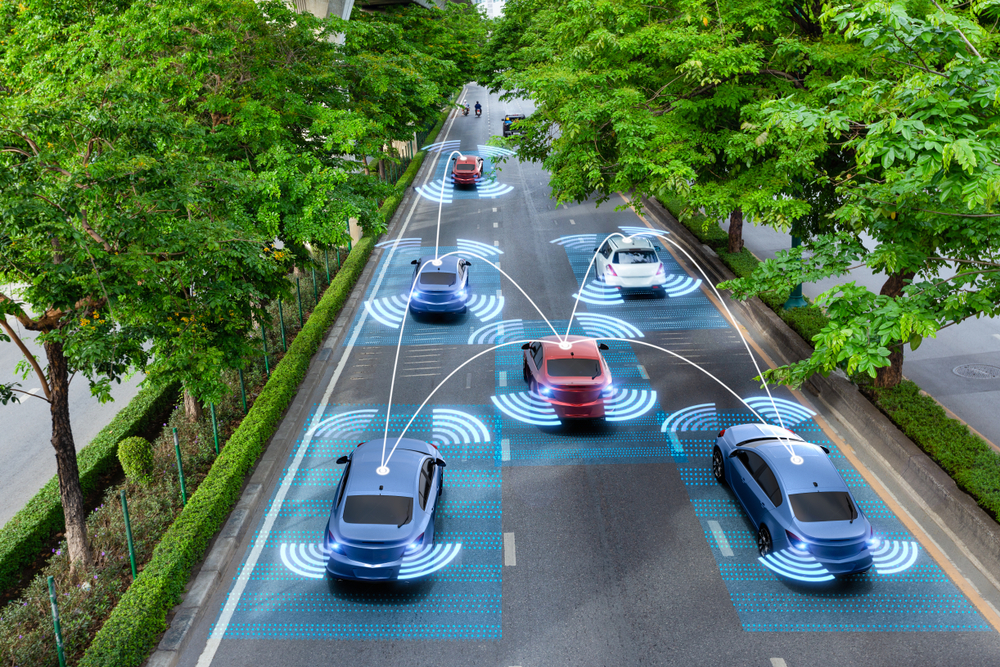- About >
- Thought Leadership >
- Navigating new automotive standards: How NSAI contributes to road safety across the European Union
By David Walsh, Head of Market and Regulatory Support, NSAI
From self-driving vehicles to tighter emissions rules, the automotive industry is set to transform over the next five years.
Advancing technologies and tighter environmental controls mean manufacturers must prepare to meet stricter regulations. Newer features like advanced driver assistance systems, autonomous vehicles and vehicle cybersecurity have also created the need for additonal standards and tighter regulations.
In the wake of these changes, approval authorities such as the NSAI are vital to ensuring we all enjoy safer roads.
NSAI is the approval authority for automotive products in Ireland and responsible for both National and European type approval.
David Walsh Head of Market and Regulatory Support
Increased environmental performance requirements
In December 2023, the European Parliament and the European Union (EU) reached an agrement on new emission standards for light-and heavy-duty vehicles.
The Euro 7 regulations (EU) 2024/1257 which entered into force in May 2024, aims to further reduce pollutant emissions from vehicles over a longer lifetime and now incorporates the emissions requirement for light-duty and heavy-duty vehicles within a single regulation.
This will first apply to new types of light passenger and commerical vehicles from November 29, 2026. All new light passenger and commerical vehicles will have to comply with Euro 7 from November 29, 2027. The regulation will apply to new types of heavy-duty vehicles from November 29, 2028, and all new heavy-duty vehicles from November 29, 2029.
Euro 7 also brings with it a number of new requirements, for example:
- Stricter lifetime requirements for all vehicles in terms of both mileage and lifetime. Vehicles must comply with the Euro 7 regulation for the duration of their applicable lifetime.
- The introduction of limits for brake particle emissions and tyre abrasion.
- More stringent emissions limits for evaporative emissions of light passenger and commerical vehicles.
- Introduction of on-board emissions monitoring (OBM).
- The limit value for particulate emissions will now apply to a smaller particulate size emitted from all vehicles (PN10).
- Battery durability requirements for plug-in hyrbid and pure electric vehicles.
- Introduction of an environmental vehicle passport (EVP), providing information of a vehicle's environmental performance data.
Safety as standard for newer vehicles
As of July 2024, all newly manufactured vehicles sold in Ireland must come equipped with a range of advanced safety systems as standard. This General Safety Regulation (GSR2) was implemented to try to significantly reduce road deaths and injuries on EU roads.
The extensive list of obligatory safety features includes:
- Intelligent speed assistance (ISA)
- This system helps drivers maintain safe speed by delivering real-time feedback and warnings when they exceed speed limits.
- Automated emergency braking (AEB)
- AEB systems detect potential collisions with other vehicles, pedestrians, and cyclists, and can automatically apply breaks to prevent or mitigate these.
- Emergency lane keeping system (ELKS)
- ELKS helps keep vehicles within their lanes by providing corrective steering inputs when necessary.
- Driver drowsiness and attention warnings
- These systems monitor driver eye movements and provide alerts if it detects signs of drowsiness or lack of attention.
- Reversing detection
- This includes cameras and sensors to help drivers detect obstacles when reversing.
- Emergency stop signal (ESS)
- ESS activates high-intensity hazard lights during emergency braking to warn other road users of sudden deceleration.
- Event data recorder (EDR)
- EDRs record critical data before, during and after a collision. This helps determine the cause of an accident and improve vehicle safety.

Autonomous vehicles (AVs)
While the law in Ireland doesn't currently allow any form of autonomous driving, new regulations for AVs will be put in place in the near future. These are set to allow specific field testing on Irish roads which could be restricted to specified areas.
To gather information, regulation has been passed at EU level to approve limited numbers of AVs for use in:
- predefined areas
- hub-to-hub transport
- automated valet parking
Monitoring the data from these studies over the next few years will inform future requirements for AVs.
The Euro 7 regulations (EU) 2024/1257 which entered into force in May 2024, aims to further reduce pollutant emissions from vehicles over a longer lifetime.
David Walsh Head of Market and Regulatory Support
A central point for vehicle type approval
NSAI is the approval authority for automotive products in Ireland and responsible for both National type approval and European approval.
The organisation works with around 250 manufacturers in Ireland and 4,500 globally to oversee the approval process for new vehicles and to ensure ongoing compliance with type approval requirements.
This includes requirements for cars, vans, trucks, motorbikes, agricultural machinery and non-road mobile machinery. In Ireland specifically, NSAI works with unregistered vehicles that need new or additional certification before they can be registered onto Irish roads. This means providing certification for products such as:
- truck bodywork
- modifying vehicles into hearses
- ambulances
- vehicles adapted for persons with mobility issues.
Work on these vehicles is carried out through NSAI's network of approved test centres and inhouse engineers.
If you're an Irish manufacturer in the automotive or agricultural sector, NSAI can offer regulatory guidance and support to help you navigate this rapidly changing environment.
Visit www.nsai.ie/certification/automotive/ to learn more.

